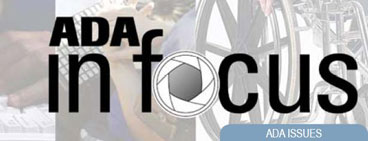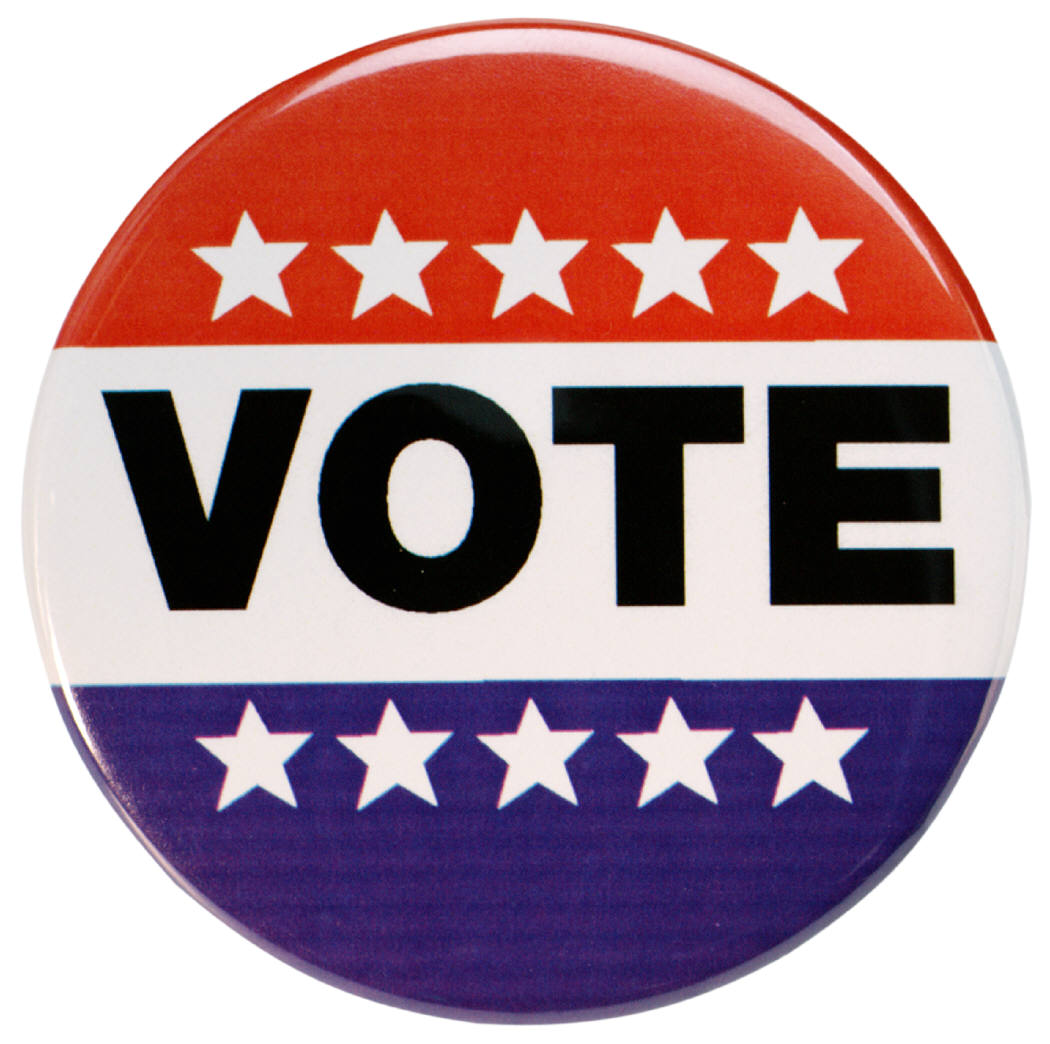Volume 24, Number 3
 ADA In Focus is published three times yearly by the Mid-Atlantic ADA Center. It is also available by request in large print, Braille, audio CD, and computer disk. To obtain copies in other formats, contact us.
ADA In Focus is published three times yearly by the Mid-Atlantic ADA Center. It is also available by request in large print, Braille, audio CD, and computer disk. To obtain copies in other formats, contact us.
ADA In Focus is intended for use by individuals, state and local governments, businesses, legal entities, and others interested in developments in the Americans with Disabilities Act. This publication is intended solely as an informal guidance and should not be construed as legally binding.
ADA In Focus does not serve as determination of the legal rights or responsibilities under the ADA for any individual, business or entity. Learn more about the Mid-Atlantic ADA Center.
Fall 2020, Volume 24, Number 3 (suitable for printing)
Fall 2020, Volume 24, Number 3, in large print (suitable for printing)
In this issue:
Focal Point
ADA Enforcement Options: Title II
Title II of the ADA prohibits discrimination against qualified individuals with disabilities in all programs, activities, and services of state and local governments, also called “public entities.”
Where do I file a complaint?
Grievance: State and local government agencies with 50 or more employees are required to have a grievance procedure and at least one employee assigned to handle ADA issues. This employee is often called an “ADA Coordinator” but may have another job title.
Information about the grievance procedure and how to contact the ADA Coordinator must be available to the public. This information may be posted on websites, at public offices or other service locations, or included in program brochures, meeting notices, or other materials.
Complaint with a federal agency: Complaints may be filed with the U.S. Department of Justice (DOJ), with any federal agency that provides funding to the state or local government entity, or with one of eight federal agencies designated according to their expertise in certain types of programs, services, and regulatory activities:
- Department of Agriculture (farming, raising livestock, extension services)
- Department of Education (elementary and secondary schools, institutions of higher education and vocational education (other than schools of medicine, dentistry, nursing, and other health-related schools), libraries)
- Department of Health and Human Services (health care and social services, preschool and daycare, schools of medicine, dentistry, nursing, and other health-related schools)
- Department of Housing and Urban Development (state and local public housing, housing assistance and referral)
- Department of Interior (lands and natural resources, parks and recreation, water and waste management, environmental protection, energy, historic and cultural preservation, museums)
- Department of Justice (law enforcement, public safety, administration of justice, including courts and correctional institutions; commerce and industry, including general economic development, banking and finance, consumer protection, insurance, and small business; planning, development, and regulation (unless assigned to other designated agencies); state and local government support services (e.g., audit, personnel, comptroller, administrative services); all other government functions not assigned to other designated agencies)
- Department of Labor (labor and the work force); note that job applicants and employees of employers covered under Title I of the ADA file employment complaints with the U.S. Equal Employment Opportunity Commission (EEOC)
- Department of Transportation: (public transportation, highways, traffic management (non-law enforcement), automobile licensing and inspection, driver licensing)
In many cases, the designated agencies already have jurisdiction under Section 504 of the Rehabilitation Act, because they provide funding to the public entity. For example, if a state park receives federal funding from the Department of the Interior (DOI), the DOI would have authority under Section 504 and would be the designated agency under Title II of the ADA for complaints against that state park.
If an individual with a disability is uncertain about where to file a complaint against any public entity, complaints can always be filed with the Department of Justice, and DOJ will determine if it should be referred to another federal agency.
Similarly, if any federal agency receives a complaint for which it does not have jurisdiction under Section 504 and is not the appropriate designated agency, it may refer the complaint to the appropriate agency.
Deadline for Filing Complaints with Federal Agencies
Complaints must be filed within 180 days of the date of the alleged discrimination.
What Happens after Complaints Are Filed?
The appropriate federal agency will review complaints and may investigate further. If the agency believes a violation of Title II occurred, they will try to negotiate a settlement. If settlement efforts fail, the matter will be referred to the Department of Justice. DOJ will decide whether to file a lawsuit against the public entity.
 Mediation
Mediation
The Department of Justice has an extensive mediation program, which is offered free of charge in cases (under Title II or Title III) where the Department believes the parties may be able to resolve their differences through discussions facilitated by a trained, neutral mediator.
Private Lawsuits
Title II does not require people with disabilities to file administrative complaints. Private lawsuits can be filed in federal court under Title II, regardless of whether an administrative complaint was filed with a federal agency, or, if a complaint was filed, whether the federal agency found a violation of the law.
Information and Resources
- How to File an Americans with Disabilities Act Complaint with the U.S. Department of Justice
- Department of Justice ADA Mediation Program
- File a Complaint with the Federal Transit Administration (FTA)
(for complaints against state or local government transit agencies) - U.S. Department of Justice Civil Rights Division Reporting Portal
(to report any allegations of violations of federal civil rights laws related to race, color, national origin, disability, sex, religion, familial status, or loss of other constitutional rights)
Close-Ups: What's New
Equal Employment Opportunity Commission Releases Technical Assistance Documents on Opioid Use and Employment
The U.S. Equal Employment Opportunity Commission (EEOC) released two new technical assistance publications to clarify ADA distinctions between legal and illegal use of opioids.
Use of Codeine, Oxycodone, and Other Opioids: Information for Employees answers common questions that job applicants and workers may have, including questions related to the legal use of prescription opioids to treat opioid addiction as part of a Medication Assisted Treatment (“MAT”) program.
Individuals who currently illegally use any types of drugs have never been protected from adverse employment actions taken on the basis of that illegal drug use. However, individuals who illegally used drugs in the past due to addiction but are not currently illegally using drugs, as well as individuals who are legally using prescription drugs, are protected from discrimination as long as they are qualified for jobs.
There are some other federal laws which require employers to disqualify workers who use opioids, but for most jobs covered by ADA provisions, employers cannot discipline, fire, refuse to hire, or take other adverse actions against workers based on assumptions or speculations about opioid use. Employers must make decisions based on an individual applicant’s or employee’s current status and qualifications.
Workers may be entitled to reasonable accommodations related to legal use of opioids and/or the underlying conditions being treated, including treatment for past addiction. Accommodations might range from adjusted schedules or time off to obtain treatment or attend therapy sessions, workplace accommodations to enable safe and effective job performance, or reassignment to new job positions.
How Health Care Providers Can Help Current and Former Patients Who Have Used Opioids Stay Employed is designed to assist health care professionals who may need to fill out forms, write letters, respond to employers’ inquiries, or otherwise support individuals in obtaining reasonable accommodations.
NDEAM: 75 Years of Celebrating Workers with Disabilities
This year marks the 75th observance of National Disability Employment Awareness Month (NDEAM). Visit the NDEAM site to find ideas and materials to help you acknowledge the contributions of workers with disabilities and promote greater access and opportunity in your community!
Spotlight: Cool Websites
 Ready, Set, Vote!
Ready, Set, Vote!
The U.S. Election Assistance Commission (EAC) offers a wealth of information on voting accessibility for people with disabilities and election officials.
REV UP: Register, Educate, Vote, Use your Power
The American Association of People with Disabilities (AAPD) promotes civic engagement and offers information about voter registration, voting rights, upcoming elections on federal, state, and local levels, and more.
Center for Advancing Policy on Employment for Youth (CAPE-Youth)
This policy development center, funded by the Office of Disability Employment Policy (ODEP) within the U.S. Department of Labor, is focused on improving employment outcomes for youth with disabilities by helping states enhance their youth service delivery and workforce systems. The site features a variety of resources and information on how policymakers, youth, families, and youth service and workforce professionals can become involved.